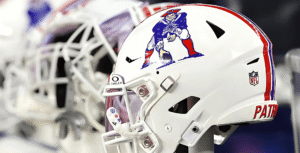
Patriots head dietician wins award from American Sports and Performance Dietitians Association
Amy Scheer, the Professional Women’s Hockey League’s executive vice president of business operations, called Seattle the…..
🗓️ June 20, 2024
Share this post
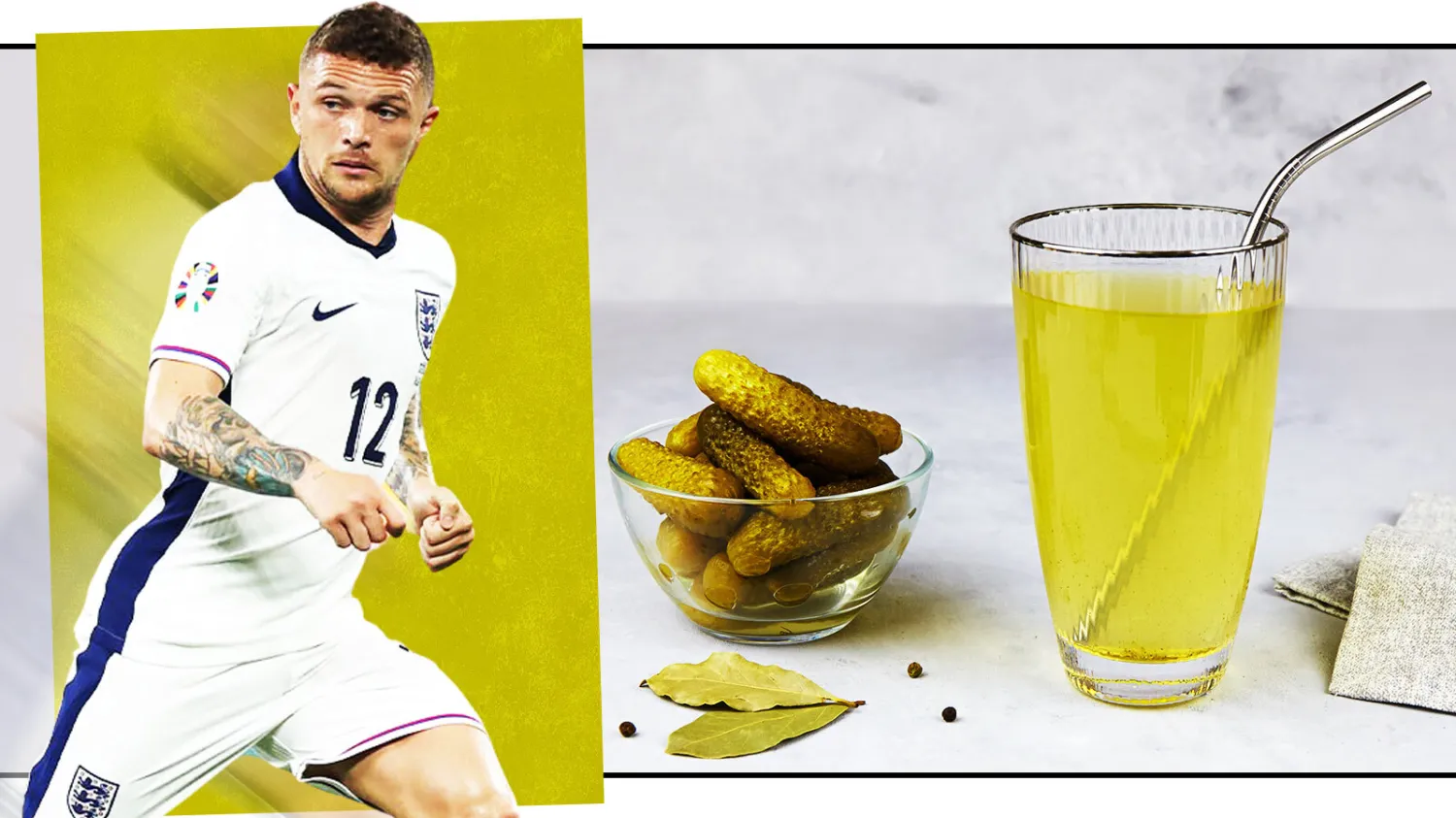
🗓️ June 20, 2024
It is an unlikely — and unpalatable-sounding — performance enhancer, but downing shots of pickle juice seems to be working for England’s football team during the early rounds of the Euros. When full-back Kieran Trippier suffered leg cramp in the latter stages of their opening match against Serbia, he was seen stretching against an advertising hoarding before drinking two sachets of pickle juice, similar to the liquid inside your jar of pickled onions or gherkins, handed to him by a team doctor. It clearly did the trick because he was back on the pitch soon after and helped England to secure victory to sit at the top of their group before tonight’s match against Denmark.
Pickle juice is just one of the nutritional aids being used to help recovery and provide England with marginal gains over their opponents. Players are also ingesting sports drinks, caffeine shots and protein bars and chewing caffeinated gum to make sure they stay on top of their game. They are not the first to use pickle juice to buoy performance. A favourite of elite sportsmen and women, it is now sold in sachets and shot-size bottles and marketed specifically for cramp prevention. When Carlos Alcaraz beat Novak Djokovic to win Wimbledon last year, it was pickle juice that he was drinking during breaks of the gruelling near five-hour final.

Carlos Alcaraz drank pickle juice during his Wimbledon-winning final last year
But what is it about the briny stuff that has afforded it a reputation as a magic potion for elite athletes? Cramp is particularly common during hot, humid conditions when people sweat more profusely during exercise. There are differing opinions as to the precise cause, but the consensus is it is a result of neuromuscular misfiring when the delicate balance of electrolytes, or salts, in the body is disturbed. “Dehydration and changes in fluid and electrolyte levels can trigger the misfiring of nerve impulses, which accidentally sends signals to muscles to contract, resulting in cramp,” says Anita Bean, the sports nutritionist and author of The Complete Guide to Sports Nutrition. “Like many other sports drinks, pickle brine contains sodium and potassium, electrolytes lost in sweat that may be helpful in preventing cramp by preserving the fluid balance, but there are also other factors at play.”
A few studies have suggested the main active compound in pickle juice is acetic acid, a by-product of fermentation that gives vinegar its characteristic odour and taste. And it is this, says Bean, that most probably stops cramp in its tracks once it has struck. Anecdotally, pickle juice fans say as little as one tablespoon of it can relieve muscle cramps within 35 seconds. “It is the acetic acid that is probably having the beneficial effect of easing cramp,” Bean says. “Nerve receptors in the mouth detect acetic acid in the pickle brine and provoke a neurological reflex in which the brain sends messages to the muscles telling them to relax.”
When sports scientists at North Dakota State University tested the effects of pickle juice on electrically induced muscle cramps in a group of dehydrated exercisers, they found it stopped the cramping. The team said “the effect could not be explained by rapid restoration of body fluids or electrolytes” and it was likely that it was the acetic acid that prevented the condition.
It is not just athletes who might benefit. For a 2022 paper published in the American Journal of Gasteroenterology, Elliot Tapper, a hepatologist and associate professor of internal medicine at the University of Michigan, asked 82 patients with cirrhosis, or chronic liver damage, who were prone to muscle cramping to take a single tablespoon of pickle juice or a small sip of tap water as soon as a cramping episode started during a four-week trial. “More patients in the pickle juice arm reported that their cramps were stopped by the intervention — 69 per cent compared to 40 per cent in the tap water arm,” Tapper said.
In his study, people did not use a commercial pickle juice shot, but were simply asked to purchase jars of non-sweetened pickles of their choice and to consume the liquid. Tapper says the results show pickle juice to be a “low-cost, widely available and safe first-line therapy” for cramp recovery.
There are other benefits, if you can stomach it. “Pickle juice is low in calories and does contain a little vitamin C and potassium,” the sports nutritionist Rob Hobson says. “But the other thing it provides is a dose of probiotics, the healthy bacteria that can improve gut health, which are another by-product of fermentation, although they are not present if the pickle juice has been pasteurised.”
If pickle juice is not for you, there are other products that claim to aid recovery and boost health. Here are four of the best.
Rich in anthocyanins — antioxidants present in red, blue and purple fruit and veg that can help to prevent inflammation — extract of blackcurrant juice has been shown to reduce muscle soreness after exercise. Supplements contain the equivalent amount of anthocyanins as a large handful of fresh blackcurrants and a study at the University of Surrey showed that gymgoers who took a capsule an hour before performing a series of biceps curl exercises recovered three times faster over a 96-hour period than a group taking a placebo. “Small studies have shown it can be effective,” Bean says. “But you would get the same benefit from eating a lot of dark berries.”
Tart-tasting Montmorency cherry juice shots are a standby for many athletes because the high amounts of antioxidant phytochemicals they contain are a potent recovery aid. One review of 14 published studies by researchers at St Mary’s University London and Northumbria University published in the International Journal of Sport Nutrition and Exercise Metabolism showed that cherry juice consumed as a shot or capsule significantly reduced muscle soreness after intense exercise compared with a placebo pill.
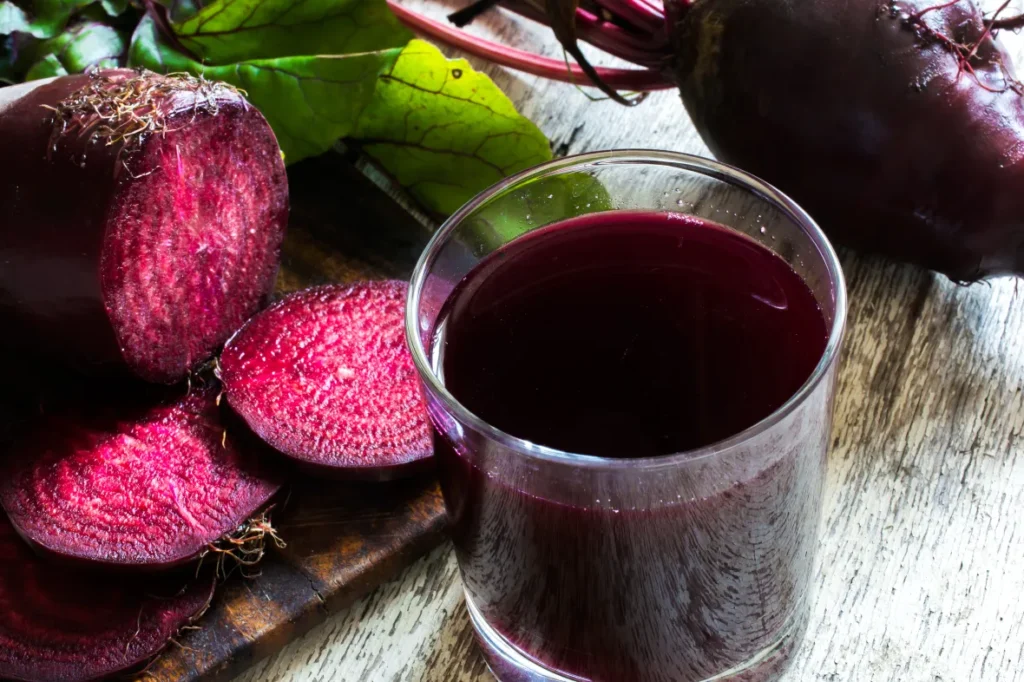
Beetroot juice can boost endurance and reduce muscle pain.
Drinking beetroot juice, which is rich in beneficial dietary nitrates, daily might achieve the double whammy of enhancing performance and aiding recovery. Last year a study in the journal Nutrients found that female athletes who consumed beetroot juice for two days before attempting a high-intensity training session had better muscle endurance and less muscle pain than those who didn’t take the beetroot supplement.
“Nitrates present in beetroot and other vegetables, including spinach, cabbage, broccoli and rocket, are converted in the body into nitric oxide, a known vasodilator, meaning it widens blood vessels and improves the supply of oxygen and nutrients to the muscles,” Bean says. “Beetroot shots are a convenient way of getting enough nitrates and there are studies showing they can increase muscle efficiency, endurance and recovery.”
A long-time favourite of elite athletes, sodium bicarbonate — or baking soda — now crops up in recovery supplements. A study conducted at various universities, including Birmingham City University and Edge Hill University, showed that bicarb supplements did promote recovery and improved performance in a subsequent bout of exercise.
“Sodium bicarbonate is a pH buffer that makes the blood more alkaline when consumed,” Bean says. “This means that the hydrogen ions that are produced during intense exercise and responsible for fatigue are removed more easily from the muscles and lactic acid is also buffered so that you can recover more quickly.”
Share this post

Amy Scheer, the Professional Women’s Hockey League’s executive vice president of business operations, called Seattle the…..
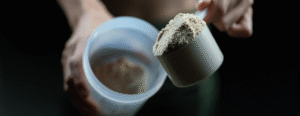
“We have many of our professional athletes that take almost no supplements, and they definitely don’t supplement protein powder,” Galpin says…..
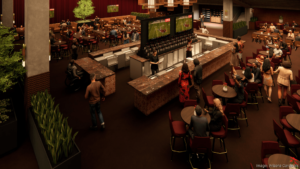
The Arizona Cardinals have brought in Sam Fox, one of the Valley’s most successful and well-known restaurateurs, to design a brand-new…..

Sign up for our newsletter and get the latest happenings and exclusives.
We look forward to connecting with you.
© 2025 Pivot Culinary Management. All rights reserved.